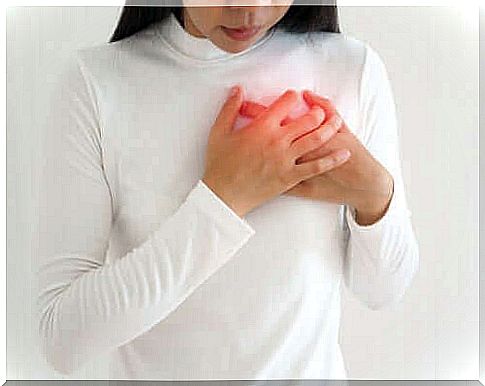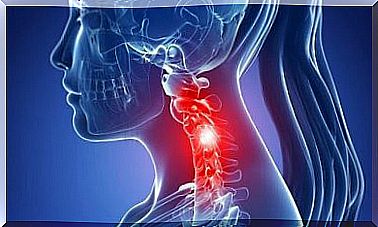The Relationship Between Tachycardia And Anxiety

Tachycardia and anxiety is a fairly common combination at the doctor’s office hours. This is because modern lifestyles promote stress. The kind that lead to all kinds of physical and psychological problems.
Tachycardia due to anxiety is in principle not a serious health problem and usually does not lead to major consequences. However, anxiety can become chronic and become a risk factor for other more serious conditions.
This type of tachycardia usually lasts only a few minutes and then disappears. Still, people may think it’s a heart attack or some other dangerous condition. So it’s important to learn to recognize and deal with it when it happens to you.
Anxiety and Heart Health
People with anxiety are more likely to develop long-term heart disease. Anxiety is normal when it occurs in response to a stimulus that carries risks or dangers. Almost everyone experiences this at some point in their life.
However, it’s a different story to be constantly anxious, especially if there’s no reasonable reason for it. You have a chronic anxiety disorder if you experience symptoms for more than six months. Estimates indicate that between 5% and 11% of the population is affected by this problem.
Chronic anxiety puts pressure on the heart and can weaken the cardiovascular system in the long run. In severe cases, it can lead to a heart attack or stroke. This is because the hormones and substances released during stress raise blood pressure or increase vasoconstriction.

Tachycardia
This is defined as an increased heart rate, when the heart beats faster than normal. There are between 60 and 100 beats per minute in a healthy person at rest. However, the heart of someone with tachycardia is greater than 100 beats per minute.
There are different types of tachycardia. In addition, they are classified into two large groups depending on the area of the heart where they originate, namely:
- An atrial tachycardia develops in the upper chambers of the heart, called atriums.
- A ventricular tachycardia starts in the lower chambers of the heart, called ventricles.
Anxiety tachycardia is common but is not the only cause of the increased heart rate. It can be due to the following conditions, among others:
- heart disease
- hypertension
- diabetes
- sleep apnea
- thyroid problems
- anemia
- the use of certain substances
So you should always consult your doctor if you experience any symptoms.
Tachycardia and Anxiety
The heart is unable to effectively pump oxygenated blood to the rest of the body when the heart rate is very high. Under these circumstances, other symptoms may appear, such as:
- palpitations
- shortness of breath
- dizziness
- fatigue
- weakness
- chestpain
- pass out
Anxiety, on the other hand, has a state of nervousness, restlessness or agitation as its main symptom. There is a sense of imminent danger or a sense that something very bad is about to happen. For example, breathing speeds up, and you may tremble and sweat. Fatigue and even weakness can also occur.
Other less obvious symptoms are stomach and intestinal complaints and difficulty falling asleep. A person with chronic anxiety feels anxious and cannot get threatening thoughts out of their mind. Anxiety leads to physiological changes and is a risk factor for various pathologies.

Coping with Tachycardia and Anxiety
Tachycardia due to anxiety is common and will not go away until emotions are under control. So, first of all, you need to understand that this acceleration of the heart rate is the result of fear.
At times like these, it’s often best to find a resting position and then take slow, deep breaths for a few minutes. Also try to evoke some pleasant images, such as a calm landscape, a pleasant event or a motivating person.
Your heart will return to its normal rhythm after a short time. Experts recommend adding magnesium to your diet and reducing your consumption of caffeine, alcohol and tobacco. In addition, regular exercise is one of the best antidotes for anxiety and a powerful protector for your heart.









